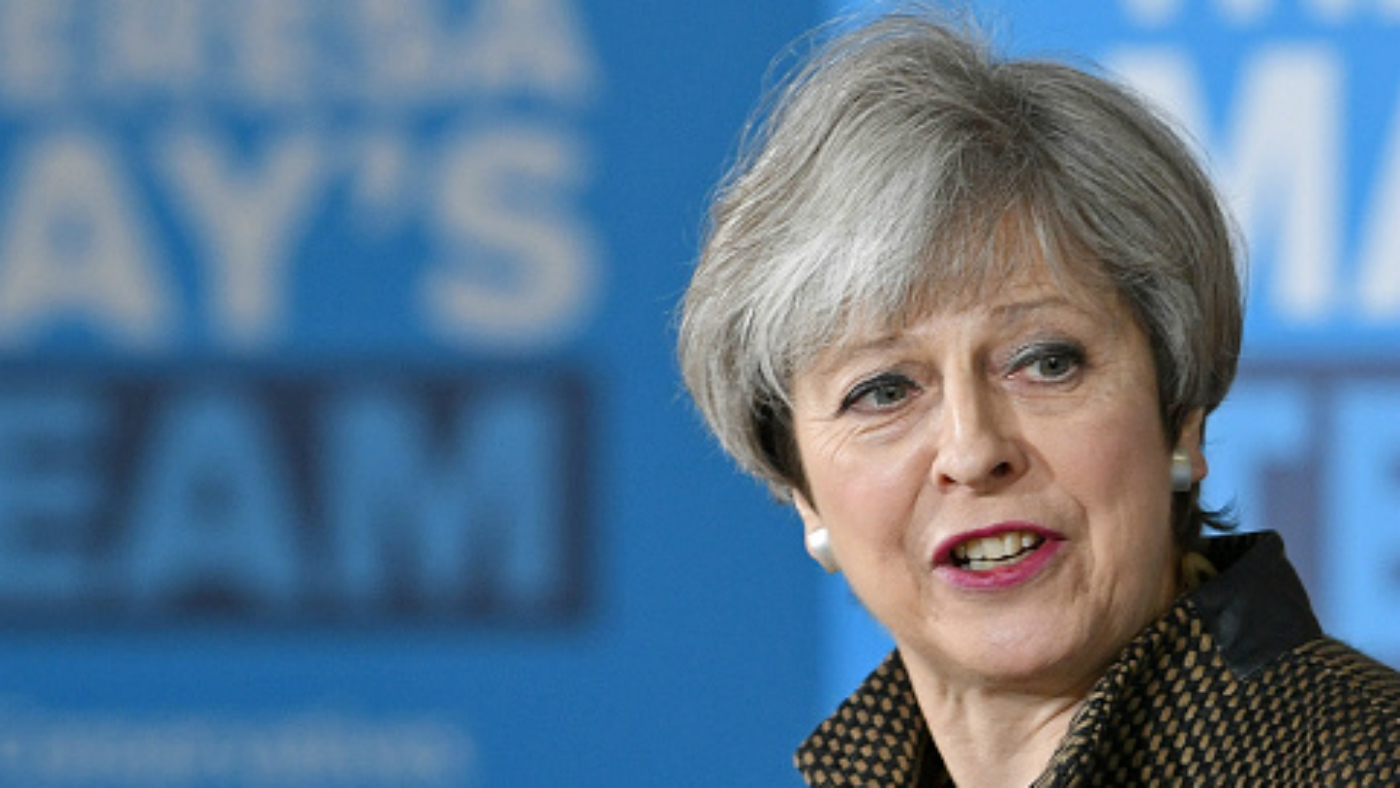Conservative manifesto 2017: Business questions interventionist 'signals'
Theresa May's policy announcement is 'not pro-business', say critics

A free daily email with the biggest news stories of the day – and the best features from TheWeek.com
You are now subscribed
Your newsletter sign-up was successful
After criticising Labour's "knee-jerk" general election manifesto, business leaders turned their attention to the Tory offering yesterday – and Theresa May's party has not been spared.
"Businesses hoping for a smooth Brexit, deregulation, and a flexible labour market attacked the… [policies] both for its policies and its tone," says the Financial Times.
"This is not a pro-business manifesto," a "senior business leader" told the paper.
The Week
Escape your echo chamber. Get the facts behind the news, plus analysis from multiple perspectives.

Sign up for The Week's Free Newsletters
From our morning news briefing to a weekly Good News Newsletter, get the best of The Week delivered directly to your inbox.
From our morning news briefing to a weekly Good News Newsletter, get the best of The Week delivered directly to your inbox.
Adam Marshall, director-general of the British Chambers of Commerce, told The Times some of the proposals "will be questioned, even by firms that are not directly affected themselves, because of the signals they send".
Policies that have drawn ire include state oversight of companies in telecoms, defence and energy sectors to ensure foreign ownership does not "undermine British security or services".
There will be new powers for regulators to stop takeovers that threaten pensions funding, while excessive executive pay will be tackled by giving investors a binding annual vote and forcing firms to publish pay ratios.
Arguably of most concern to business is the restatement of a target to reduce migration to the tens of thousands and to double the levy on companies hiring non-EU workers to £2,000 a year.
A free daily email with the biggest news stories of the day – and the best features from TheWeek.com
The manifesto was unapologetic about the level of intervention, saying the Conservatives "do not believe in untrammelled free markets", says the Times.
Despite the more interventionist tone, business leaders still seem broadly to favour the party over its main rivals, thanks to a range of tax reductions and reforms including renewing the pledge to reduce corporation tax to 17 per cent, increasing spending on research and development to three per cent of GDP, boost funding for the National Productivity Investment Bank and review business rates.
However, Marshall added: "The positive reception to some elements of the manifesto will be tempered by proposals that would increase upfront costs, regulatory obligations and uncertainty for businesses."
-
 Crisis in Cuba: a ‘golden opportunity’ for Washington?
Crisis in Cuba: a ‘golden opportunity’ for Washington?Talking Point The Trump administration is applying the pressure, and with Latin America swinging to the right, Havana is becoming more ‘politically isolated’
-
 5 thoroughly redacted cartoons about Pam Bondi protecting predators
5 thoroughly redacted cartoons about Pam Bondi protecting predatorsCartoons Artists take on the real victim, types of protection, and more
-
 Palestine Action and the trouble with defining terrorism
Palestine Action and the trouble with defining terrorismIn the Spotlight The issues with proscribing the group ‘became apparent as soon as the police began putting it into practice’
-
 Labour shortages: the ‘most urgent problem’ facing the UK economy right now
Labour shortages: the ‘most urgent problem’ facing the UK economy right nowSpeed Read Britain is currently in the grip of an ‘employment crisis’
-
 Will the energy war hurt Europe more than Russia?
Will the energy war hurt Europe more than Russia?Speed Read European Commission proposes a total ban on Russian oil
-
 Will Elon Musk manage to take over Twitter?
Will Elon Musk manage to take over Twitter?Speed Read The world’s richest man has launched a hostile takeover bid worth $43bn
-
 Shoppers urged not to buy into dodgy Black Friday deals
Shoppers urged not to buy into dodgy Black Friday dealsSpeed Read Consumer watchdog says better prices can be had on most of the so-called bargain offers
-
 Ryanair: readying for departure from London
Ryanair: readying for departure from LondonSpeed Read Plans to delist Ryanair from the London Stock Exchange could spell ‘another blow’ to the ‘dwindling’ London market
-
 Out of fashion: Asos ‘curse’ has struck again
Out of fashion: Asos ‘curse’ has struck againSpeed Read Share price tumbles following the departure of CEO Nick Beighton
-
 Universal Music’s blockbuster listing: don’t stop me now…
Universal Music’s blockbuster listing: don’t stop me now…Speed Read Investors are betting heavily that the ‘boom in music streaming’, which has transformed Universal’s fortunes, ‘still has a long way to go’
-
 EasyJet/Wizz: battle for air supremacy
EasyJet/Wizz: battle for air supremacySpeed Read ‘Wizz’s cheeky takeover bid will have come as a blow to the corporate ego’